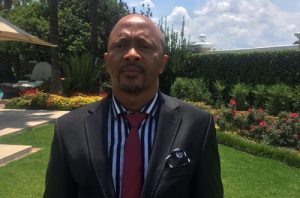
In 2015, Thabo Sikukula after experiencing a number of business failures made the decision to do something that many entrepreneurs often don’t consider – he would attempt to grow a business instead of the traditional route of starting one from scratch.
He bought a business that was already turning a profit.
WP Timber manufactures timber doors and window frames. The company services more than 300 clients including outlets such as Boxer Build, Cash Build among others. Sikukula together with his wife, Noxolo, took over a timber manufacturing company, WP Timber Products, located in Stutterheim, a small town on the border of the Eastern Cape province.
“We currently sell our products to all national hardware stores in the Eastern Cape and are planning to increase our basket by manufacturing and selling other products to our current customers,” says Sikukula.
The big advantage
The decision to buy an existing business came with one big advantage – Sikukula found that it was easier for him to secure the necessary funding.
It may be easier for an entrepreneur to obtain finance as an existing business will have a proven track record. There will also be a demonstrated market for the product or service as well as an established customer base and reliable income – thereby making the investment less risky.
“From my experience it is easier to raise capital in a going concern due to the history it has with the financial institutions.”
Sikukula approached the Masisizane Fund (MF) and Small Enterprise Finance Agency (Sefa) to help him acquire the manufacturing plant, which they were able to do with a discount. From MF he received R3 750 000 in loan funding and Sefa provided him with a R5 000 000 loan. The Old Mutual Foundation pledged a further R1.5 million in grant funding after seeing the potential in the business.
Achieving big targets
Since taking over the company, Sikukula has been able to retain 135 permanent jobs in the rural town and has employed 4 more.
The business turnover has grown in excess of 35%, and sales by 30%.
Further growth is in the cards. Next up is the establishment of a small sawmill factory, which will mean they will be able to draw their own raw material. Sikukula expects the mill to create 60 new jobs in the impoverished area in Butterworth, Eastern Cape where he will be recruiting workers from the local community to contribute to the development of the local community.
Most recently, the business has also secured the South African rights to manufacture UPVC windows and doors with a leading German based UPVC factory, Kömmerling, which is set to take off this year.
A supportive hand
With the the massive amounts of money that the business had to handle the funders made sure that Sikukula received plenty of support. “Masisizane Fund gave our business a lot of support by being involved in the stability and growth of the business every step of the way.” In the beginning this meant monthly meetings with their post investment team to discuss everything from their finances, production and future plans, he adds.
This sort of intervention was been helpful, adds Sikukula particularly in helping them to anticipate possible challenges and issues along the way.
One such intervention was MF helping Sikukula and his wife to enroll at the University Of Cape Town to take a course in Financial Management.
However, having funders onboard before launching the business also comes with its own requirements, he adds.
“Before deciding on the business venture ensure to involve the funders from the initial stages so they will unpack the business in ensuring the profitability, growth potential, correct purchase price (for going concern).”
Transparency, trust and loyalty
While an existing business can sometimes present less risk than building a startup from scratch, a good and solid business idea is still critical, says Sikukula.
Other lessons that Sikukula has learnt along the way is the importance of empowering others, but ensuring that they were also empowered with the necessary skills to make the business a success.
“My greatest secret thus far is investing in my employees by doing little things that make them feel as if they co-own the business.”
Also key has been transparency to all stakeholders including employees, suppliers, customers and funders, he adds.
Next up for the entrepreneur is acquiring 51% of an Aluminum factory.”MF has shown interest in the acquisition,” he adds.


